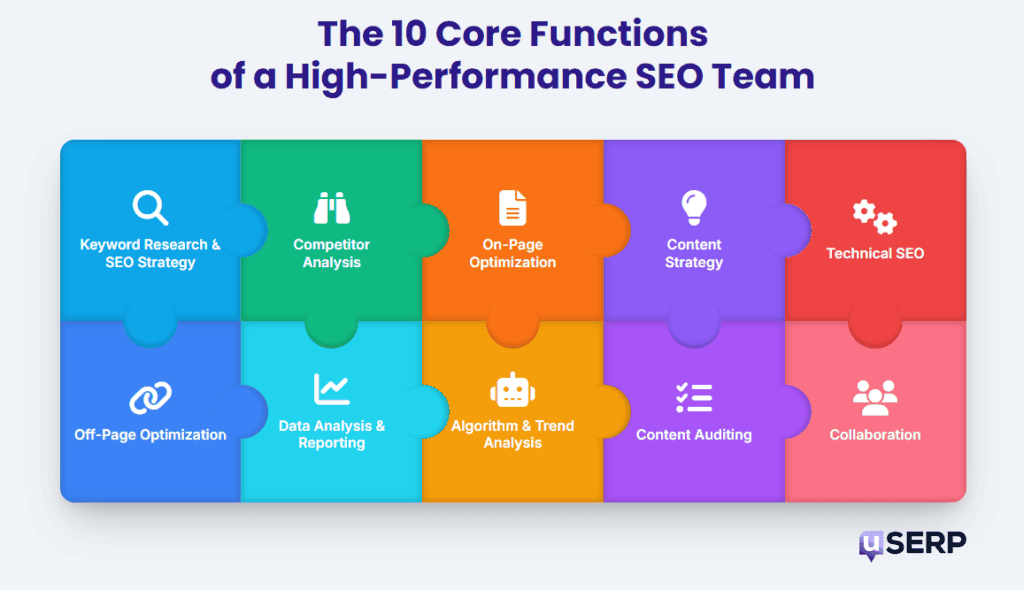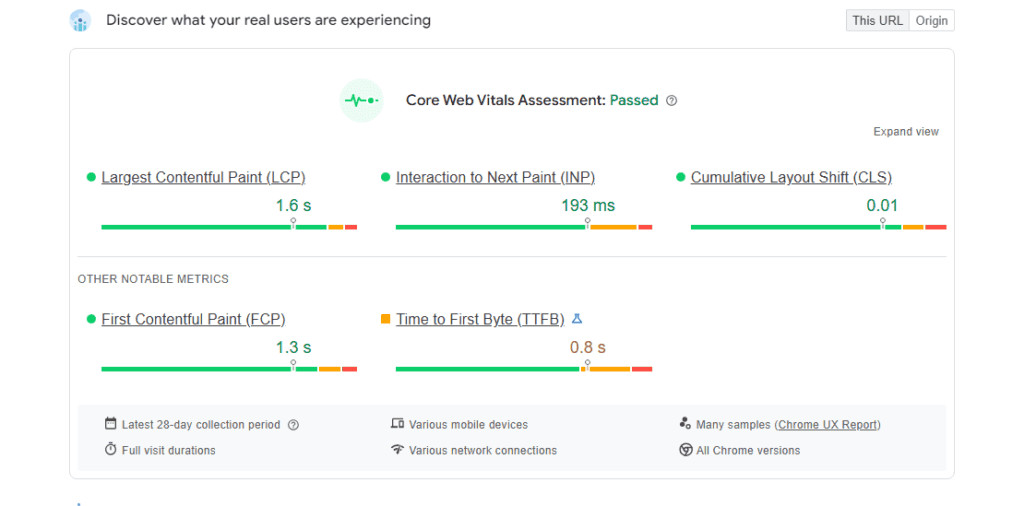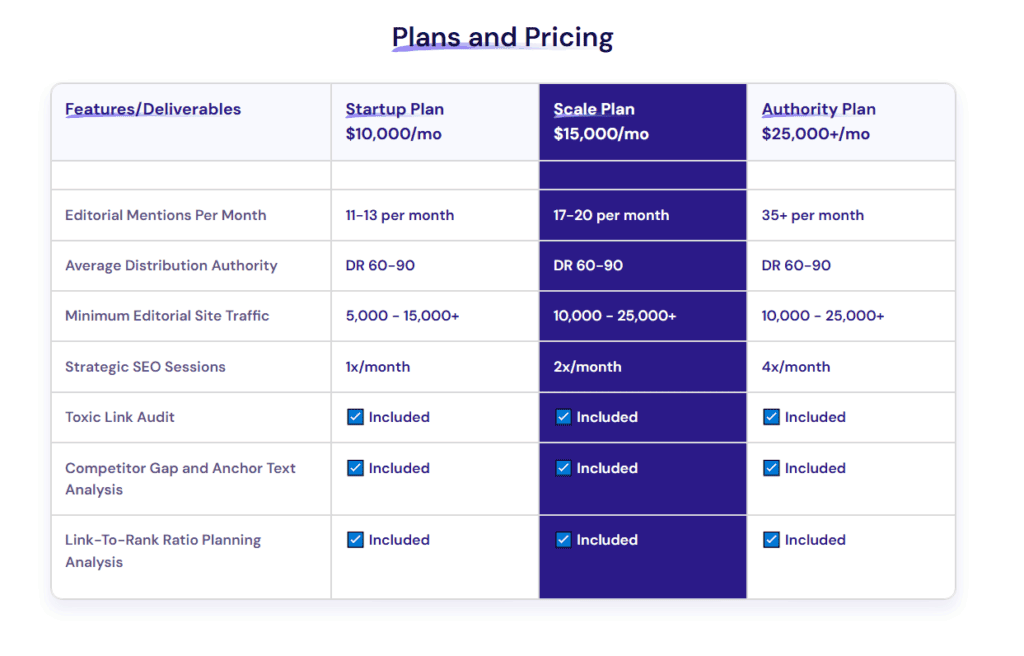The hard lesson I learned building uSERP and helping countless SaaS leaders scale is this:
A group of smart marketers is not the same as a high-performance SEO team.
The difference is structure, clarity, and a shared understanding of the mission. Building that “dream team” isn’t just about finding specialists; it’s about defining the fundamental jobs to be done, placing the right people in the right seats, and aligning everyone toward a single North Star—owning the search results that fuel your business growth.
This post is our blueprint for doing exactly that.
Highlights
- Functions before roles: Before you even think about job titles, identify the ten core functions of any successful SEO program, from technical audits to competitor analysis.
- Goals dictate structure: Your overarching business goals should directly inform the composition and priorities of your team.
- The core structure of an SEO team: A core SEO team comprises an SEO strategist, a technical SEO specialist, one or more content creators, and a link-building specialist.
- The hybrid model wins: For most scaling businesses, combining a core in-house strategist with specialized agency partners offers the perfect blend of control, expertise, and scalability.
- Budget realistically: Understand the true costs of an in-house team, including salaries, benefits, and tools, and compare that investment against the value of outsourcing to make the smartest financial decision.
First, define your goals: What does a winning SEO strategy look like for you?
Before you write a job description, you need a map. The “best” SEO team is a relative term; what’s best for a B2B SaaS giant like Monday.com is fundamentally different from what’s best for a rising D2C e-commerce brand. The only way to build the right team is to reverse-engineer its structure to match your desired business outcomes.
It all starts with one simple question.
Are you chasing organic traffic or qualified leads?
Defining success is the first step. There are three main goals behind SEO:
- Driving bottom-of-funnel conversions that translate directly to revenue
- Playing a numbers game to maximize top-of-funnel brand awareness
- A bit of both
Your answer dramatically shapes your team’s focus.
For example, a media site that relies on ad revenue needs massive organic traffic. Their SEO strategy will be built around high-volume keywords, and their team will likely be heavily weighted toward content creation and promotion to attract the largest possible audience.

In contrast, a B2B SaaS company selling a high-ticket product needs qualified leads. Their SEO process will focus on high-intent, long-tail keywords, and their team will need a sharp focus on conversion rate optimization and technical SEO to ensure a seamless user experience for potential buyers.
Aligning your SEO team with the broader marketing department and product team
A truly effective SEO team acts as a central hub, deeply integrated with other key departments:
- They should be in constant communication with the product and web development teams to influence the overall website experience
- They must collaborate closely with the content marketing team on creating search-optimised content and blog posts
- They need to work hand-in-hand with the PR team to turn media wins into powerful digital PR backlinks
Fostering this collaboration from day one with shared KPIs and regular inter-departmental meetings is non-negotiable for success.
Understand the functions, then define the roles
So, how do these goals translate into actual functions? Having clarity on the functions makes it easier to define the roles and skill sets you need for your SEO team.

(Image provided by author)
The 10 core functions of a high-impact SEO team
Whether you’re a one-person show or a twenty-person department, your SEO team needs to cover the following ten functions for your SEO program to succeed.
| Function | Core Purpose |
| Keyword research & SEO strategy | To identify the terms your audience is searching for and build a data-driven plan to meet their needs |
| Competitor analysis | To analyze what top competitors are doing right, identify strategic gaps, and find opportunities to outperform them |
| On-page optimization | To optimize individual page elements to improve relevance and search engine readability |
| Content strategy | To develop a comprehensive plan for creating, publishing, and managing content that attracts and engages your target audience |
| Technical SEO | To fix and optimize the website for site speed, crawlability, and indexability |
| Off-page optimization | To build your website’s authority and trust across the web, primarily through earning high-quality backlinks |
| Data analysis & reporting | To track key performance indicators (KPIs), SEO ROI, and identify opportunities for growth |
| Algorithm monitoring & trend analysis | To stay ahead of search engine algorithm updates and adapt the strategy to new trends in search |
| Content auditing | To regularly review existing content and ensure it remains accurate, relevant, and effective |
| Collaboration | To work seamlessly with other departments (web dev, PR, marketing) to ensure SEO is integrated across the business |
While this isn’t an exhaustive list of every task that can fall under the SEO umbrella, these ten functions represent the non-negotiable core. Any successful SEO team, regardless of its size, must have a plan to consistently execute on every one of them.
According to Conductor’s 2025 State of SEO report, 91% of respondents said SEO had a positive impact on their website performance and marketing goals. This shows how vital it is for businesses to have these functions covered by a capable, well-structured team.
The core roles of a modern SEO dream team
Now that we’ve defined the functions, we can talk about the roles that execute them. Think of it like building a championship sports team; you need players with different, complementary skill sets. This same principle shows up clearly in sports use cases, where success depends on assembling specialists who each excel at a specific role while working toward a shared objective. In a small organization, one person might wear multiple hats, but as you scale, you’ll want to hire dedicated specialists.
The SEO strategist: The architect of your search engine success
The SEO strategist (or SEO specialist) is your head coach. They primarily own the keyword research, competitor analysis, and data analysis functions, setting the high-level SEO strategies and taking accountability for performance. They are the CEO of organic search. They understand the entire ecosystem and know which levers to pull to get results.
Key traits and skills to look for
- Proven experience with SEO tools like Ahrefs, Semrush, Link Whisper, or Moz
- Excellent communication skills to earn buy-in from leadership
- Ability to translate raw data into actionable business insights
- Deep understanding of business models and data analysis
- Long-term strategic thinking and foresight
The technical SEO specialist: the engineer behind your site performance
This is your team’s engineer, diving deep into your website’s technical issues.
The technical SEO role is all about making sure search engines can efficiently crawl, index, and understand your site. They are the ones who speak Google Bot’s language and work closely with your web development team to fix indexability issues and improve site performance.

Using an AI website builder can also streamline this process by providing clean code, optimized structures, and built-in SEO controls.
Key traits and skills to look for
- Ability to clearly communicate highly technical issues to non-technical stakeholders
- Strong understanding of site architecture, schema markup, and site speed factors
- Proficiency with tools like Screaming Frog and Google Search Console
- A meticulous, problem-solving mindset
The content creator: Your brand’s voice in search
Content creators take care of your content strategy and on-page optimization functions. They are responsible for creating high-quality, search-optimised content that actually answers your audience’s questions.
How this role fits into your team is a critical design choice; they can be:
- Outsourced freelancers managed by an in-house SEO lead
- Part of a separate but collaborative content team
- Or fully integrated into your SEO team
Key traits and skills to look for
- Rigorous research skills to become a subject matter expert
- Familiarity with keyword optimizers like Frase or SurferSEO
- A strong sense of empathy for the user’s search intent
- A solid understanding of on-page SEO principles
- Exceptional writing and editing abilities
They should also be experts in using Google Docs or other collaborative content creation platforms.

(Screenshot provided by author)
The link building specialist: Your brand’s authority builder
Link building is one of the toughest parts of the job. A link building specialist owns the off-page optimization function, and their importance cannot be overstated.
This role is about more than just links. It’s about building real relationships and earning trust signals from across the web. They’re the engine that drives your domain authority forward, making all your other efforts more effective.
Key traits and skills to look for
- An organized approach to managing campaigns and relationships
- Strong interpersonal and persuasive communication skills
- Creativity in link prospecting and blogger outreach
- Resilience, persistence, and a positive attitude
The forward-thinker: Succeeding in the new search landscape
This isn’t a separate role but a critical mindset for owning the evolving algorithm monitoring and trend analysis function.
Your SEO Strategist, in particular, must embody this spirit. So must your technical SEOs and content creators. They need to stay ahead of the curve on:
- Answer Engine Optimization
- Google algorithm updates
- Generative search

In essence, they must stay on top of any shift in the search ecosystem to ensure your strategy isn’t just effective today but prepared for tomorrow.
Structuring your team: In-house vs. agency vs. the hybrid powerhouse
Once you know the roles you need to fill, the next big question is how. There are three primary models for building out your SEO capabilities. The right choice depends on your budget, internal expertise, and need for speed.
Building an in-house team for deep integration and control
Bringing your SEO teams in-house offers:
- Seamless integration with other departments
- Total control over your SEO strategy
- Unmatched brand knowledge
You have dedicated experts living and breathing your brand every single day. However, this path comes with challenges, including the high cost and often lengthy timeline required to recruit, hire, and train top-tier talent.
Leveraging a search engine optimization agency for specialized expertise
Outsourcing SEO gives you instant access to a team of vetted specialists and advanced tools without the overhead of full-time hires.

A great agency brings years of cross-industry experience to the table. The key is learning how to choose the right partner and being aware of and avoiding common red flags, like:
- Promises of unrealistic results and timelines
- Shady pricing strategies
- Lack of transparency
- Blackhat tactics
The hybrid model: The secret weapon for most scaling businesses
For most businesses we work with at uSERP, the hybrid model offers the best of both worlds. This typically involves an in-house SEO lead who manages the overall vision while partnering with a specialized agency like uSERP to take care of specific functions like AI-free content creation, premium link building, and AI SEO services.

This model provides both strategic control and scalable, world-class expertise right where you need it.
Where to find your SEO dream team: Recruiting and hiring
Ok, so if you’re going full in-house or outsourcing only some parts of your SEO, you’ll have to recruit a team. Finding top SEO talent requires looking beyond generic job boards. The best performers are often happily employed and not actively looking for a new role.
You must be proactive. But where do you find them?
Here are a few tips:
- Identify successful companies in search results for admired keywords, then use LinkedIn to find their current or former SEO team members
- Consider additional platforms for recruiting SEOs and content creators, such as Upwork, Workana, and Fiverr
- Post job listings on niche SEO communities and job boards (e.g., SEOjobs.com, Traffic Think Tank)
Don’t shy away from asking your coworkers. We’ve found amazing writers through personal references who have become invaluable team members.
The million-dollar question: Budgeting for your SEO team
Let’s talk numbers. You’re all set to start building that team of rock-star SEOs. But how much will it cost?
The cost of an in-house SEO team
Building an in-house team is a significant investment.
Before finalizing your hiring plan, it’s worth reconsidering how you model costs and profits. Many agencies today adopt flexible pricing frameworks, powered by usage-based billing systems, to align expenses with output. This approach ensures predictable margins as teams grow and lets you link resource consumption directly to client value —a crucial strategy for scaling SEO operations sustainably.
Here’s a look at the median salary ranges for key roles in the United States.
| Position | Median Base Salary | Salary Range (25–75%) |
| SEO Strategist/Manager a | $79,000 | $55,000–$114,000 |
| Technical SEO Specialist b | $80,400 | $73,500–$91,900 |
| SEO Writer c | $61,600* | $49,000–$79,000 |
| SEO Link Builder d | $58,700* | $44,000–$81,000 |
Sources: aPayscale; bSalary.com; cGlassdoor; dGlassdoor
*Estimated
So, there’s a 50% chance you’ll pay anywhere from $222,000–$366,000 annually for a minimalist team, with a median of $280,000. Also, keep in mind the figures above only show base pay. They don’t include the additional costs that can add another 25-30% to the total, including:
- Onboarding
- Recruiting
- SEO tools
- Benefits
- Training
- Taxes
So, you could be looking at as much as $475,800 a year for a four-person team.
Contrasting with the cost of outsourcing
Now, compare those numbers to an agency retainer.
You can often gain access to an entire team of specialists—a strategist, a technical expert, an entire content team, and a link building powerhouse—for a monthly cost that is less than the fully-loaded salary of a single senior in-house hire.

This is the power of the agency model.
Building your SEO team is a marathon, not a sprint
Building the perfect SEO team doesn’t happen overnight. It’s an iterative process that starts with a deep understanding of your business goals and the core functions needed to achieve them. From there, you can define the right roles, set a realistic budget, and find the right talent to execute your vision.
Whether you choose to build in-house, partner with an agency, or embrace the power of the hybrid model, the key is to be strategic, patient, and focused on creating a collaborative environment.
And if you’re looking to supercharge your off-page authority and secure the kind of high-quality backlinks that define market leaders, book a call today and see how uSERP can help.


